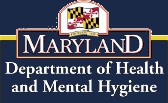Leveraging Additional Resources and Supporting Sustainable Programs
The CHRC supports grantees in their efforts to obtain additional, non-state funding to create sustainable health care programs. Over the last six years, the Community Health Resources Commission has awarded 110 grants, totaling $23.1 million, and these programs have expanded health care access to more than 100,000 Marylanders, supporting programs in all 24 jurisdictions of the state. The $23.1 million provided by the CHRC has enabled 46 grant programs to leverage approximately $10.2 million in additional federal, private/non profit resources, and other resources. The Commission has served as an “incubator” for programs that use its Commission funding to create or “jump start” programs that can later achieve long-term sustainability through developing third-party billing capacity or by on-going federal or private funding sources.
Examples of grantees that have successfully leveraged CHRC initial funding into long-term, sustainable programs include the following:
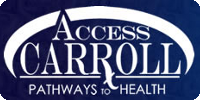 Access Carroll, Inc. – Carroll County
Access Carroll, Inc. – Carroll County
Access Carroll, Inc., a free clinic operating in Westminster, MD, was awarded $100,000 in FY 2007 to provide primary and specialty health care services to low income, uninsured residents of Carroll County. Over the one-year grant period, Access Carroll cared for nearly 600 patients and provided 6,000 patient encounters and leveraged the CHRC’s initial $100,000 investment to raise an additional $659,000 in private and local funding support. Access Carroll continues to provide health care to underserved areas and at-risk populations in the community long after CHRC funding has been expended.
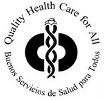 Choptank Community Health System, Inc. - Talbot and Dorchester Counties
Choptank Community Health System, Inc. - Talbot and Dorchester Counties
Choptank Community Health System (CCHS), a Federally Qualified Health Center operating multiple service locations on the Eastern Shore, was awarded a $300,000 two-year grant in FY 2008 to expand its dental program’s capacity to serve adults and children from Talbot and Dorchester Counties. CCHS’s grant program targeted an area of the state with significant oral health issues and a shortage of dental health professionals to sufficiently meet the needs of its residents. CCHS was able to use the Commission funding to significantly expand its capacity and was able to secure an ongoing $215,000 annual federal grant from the Health Resources and Services Administration (HRSA) to continue to provide dental services.
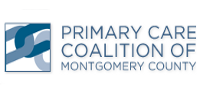 Primary Care Coalition of Montgomery County - Montgomery County
Primary Care Coalition of Montgomery County - Montgomery County
The Primary Care Coalition of Montgomery County (PCC) supports and administers access to care programs for the uninsured and low-income residents through a variety of partnerships and networks throughout the jurisdiction. The CHRC awarded the PCC a total of $375,000 in FY 2009 to coordinate and streamline specialty care for patients enrolled in the Montgomery Cares program. Since its grant award, the Primary Care Coalition has established a Specialty Care Network in the county that has assisted more than 5,800 patients obtain access to 9,450 specialist encounters. During the course of this grant program, the PCC was able to develop partnerships with hospitals and health care professionals to provide pro-bono care and obtained support from private foundations, county and private donations totaling more than $898,800 in additional leveraged funding.
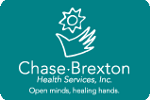 Chase Brexton Health Services – Howard County
Chase Brexton Health Services – Howard County
Chase Brexton Health Services is a Federally Qualified Health Center with sites in Baltimore City, Baltimore, Talbot, and Howard Counties. In FY 2009, the CHRC awarded Chase Brexton a $500,000 grant to develop a dental service site in Howard County to provide comprehensive oral health services to adults and children. Chase Brexton’s three-year dental program exceeded initial patient projections by 60%, serving more than 4,700 patients, and remains in full operation today. Chase Brexton Health Services has successfully leveraged the CHRC initial investment to secure more than $700,000 in private and local funding support and surpass anticipated patient revenues by nearly $600,000 to sustain this program.
